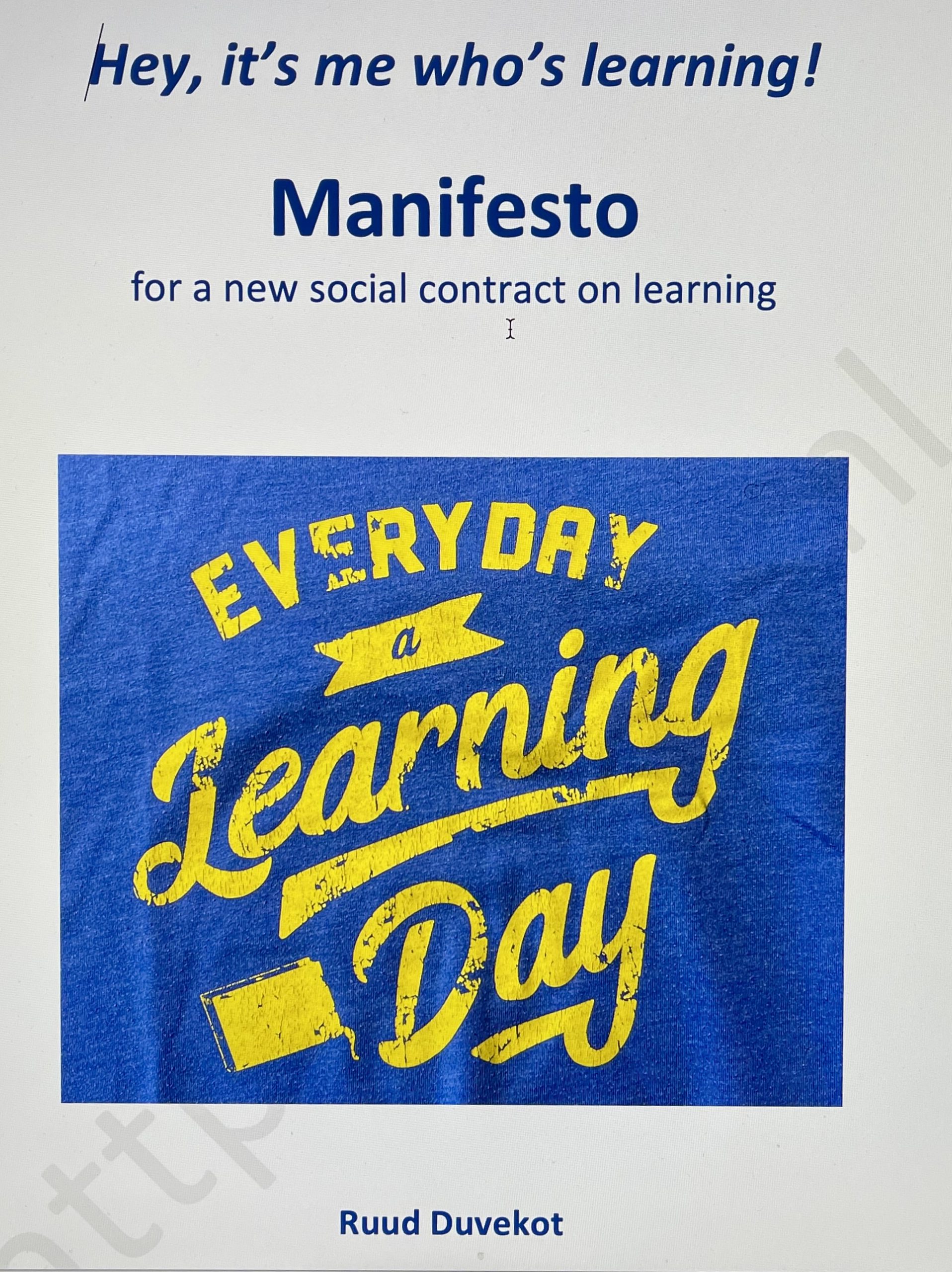Hey! It’s me who’s learning!
On a global scale, a general trend is visible in a slow but sure development towards a learning culture that has more attention for the learner as the primary actor in engaging in (lifelong) learning. The trend shows itself in more contextualisation, personalisation and flexibilisation of learning processes, strengthening of the process-driven nature of learning and the growing use of validation techniques.
This transition entails a shift from the analytical, mass learning and control-oriented learning paradigm to a more holistic, personalised, customised and trust-based learning paradigm. It is in fact a shift in the learning culture from control of what needs to be learned, to trust in what has been and can be learned. What’s at stake is re-arranging the existing social contract into a new one that’s not top-down managed and system dominated but bottom-up-steered and listening to ‘the voice of the learner’!
A new social contract will enable the learning systems in education & training and in human resource management systems to adapt to the shifting learning paradigm. For the sake of this shift, it is vital for the main actors in the “learning triangle” to (re)gain their meaningful role in lifelong learning processes:
- The learner needs to be empowered by supporting her in articulating ‘her voice’ and learning to be a reflective actor in learning processes. The learner therefore needs to learn reflecting on one’s activities and articulate one’s learning needs.
- The teacher/trainer has to regain her autonomy as a professional by no longer being merely the guardian of qualification standards but more the manager and guide of learning processes that support learners in their (lifelong) learning. The teacher-trainer has to learn listening to the learner’s voice.
- The human resources expert or any other functionary responsible for the HRM in the organisation must also regain her position as an autonomous professional in stimulating and affording the learning processes of employees, job seekers, volunteers, migrants, refugees, etc. in a dialogical way. The HR-expert needs to learn to invest in people through such dialogues.
This Manifesto provides the building blocks for paving the way to a new social contract on learning in the 21st century learning societies; a contract that’s bottom-up steered and not top-down anymore.
Manifesto on a new social contract for learning
